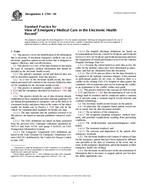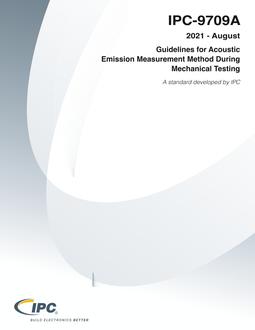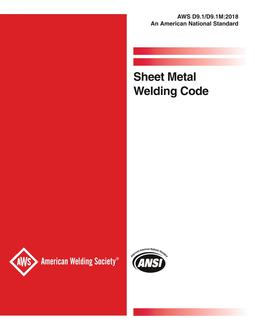
ASTM E1744-04
Original price was: $83.00.$50.00Current price is: $50.00.
Standard Practice for View of Emergency Medical Care in the Electronic Health Record
standard by ASTM International, 11/01/2004
1.1 This practice covers the identification of the information that is necessary to document emergency medical care in an electronic, paperless patient record system that is designed to improve efficiency and cost-effectiveness.
1.2 This practice is a view of the data elements to document the types of emergency medical information that should be included in the electronic health record.
1.2.1 The patient’s summary record and derived data sets will be described separately from this practice.
1.2.2 As a view of the electronic health record, the information presented will conform to the structure defined in other ASTM standards for the electronic health record.
1.3 This practice is intended to amplify Guides E 1239 and F 1629 and the formalisms described in Practices E 1384 and E 1715.
1.3.1 This practice details the use of data elements already established in these standards and other national guidelines for use during documentation of emergency care in the field or in a treatment facility and places them in the context of the object models for health care in Practice E 1384 that will be the vehicle for communication standards for health care data.
The data elements and the attributes referred to in this practice are based on national guidelines whenever available.
The EMS definitions are based on those generated from the previous EMS consensus conference sponsored by NHTSA and from ASTM task group F 30.03.03 on EMS Management Information Systems.
The Emergency Department (ED) definitions are based on the Data Elements for Emergency Department Systems (DEEDS) distributed by the Centers for Disease Control in June 1997.
The hospital discharge definitions are based on recommendations from the Centers for Medicare and Medicaid Services (CMS) for Medicare and Medicaid payment and from the Department of Health and Human Services for the Uniform Hospital Discharge Data Set.
Because the current trend is to store data as text, the codes for the attribute values have been determined as unnecessary and thus are eliminated from this document.
The ASTM process allows for the data elements to be updated as the national consensus changes. When national or professional guides do not exist, or whenever there is a conflict in the existing EMS, ED, hospital or other guides, the committee will recommend a process for resolving the conflict or an explanation of the conflict within each guide.
1.3.2 This practice reinforces the concepts set forth in Guide E 1239 and Practice E 1384 that documentation of care in all settings shall be seamless and be conducted under a common set of precepts using a common logical record structure and common terminology.
1.4 The electronic health record focuses on the patient.
1.4.1 In particular, the computer-based patient record sets out to ensure that the data document includes:
The occurrence of the emergency,
The symptoms requiring emergency medical treatment, and potential complications resulting from preexisting conditions,
The medical/mental assessment/diagnoses established,
The treatment rendered, and
The outcome and disposition of the patient after emergency treatment.
1.4.2 The electronic health record consists of subsets of data for the emergency patient that have been captured by different care providers at the time of treatment at the scene and en route, in the emergency department, and in the hospital or other emergency health care settings.
1.4.3 The electronic record focuses on the documentation of information that is necessary to support patient care but does not define appropriate care.
Product Details
- Published:
- 11/01/2004
- Number of Pages:
- 27
- File Size:
- 1 file , 240 KB
- Redline File Size:
- 2 files , 430 KB
- Note:
- This product is unavailable in Russia, Ukraine, Belarus


